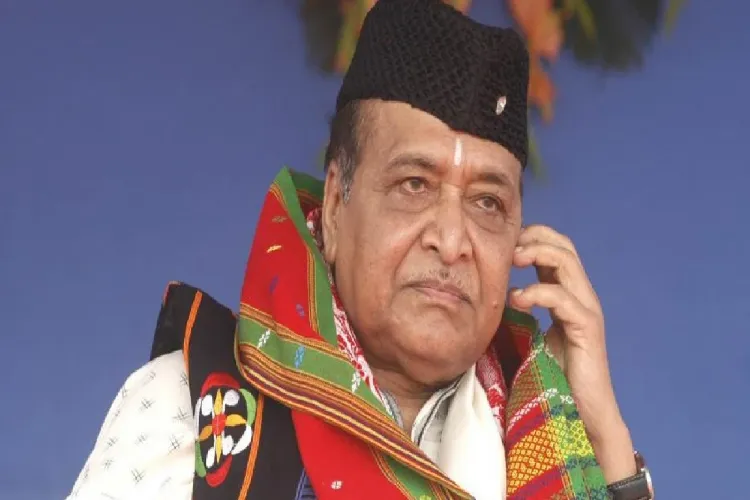
Daulat Rahman/Guwahati
For a man who penned and sang immortal, patriotic lines such as “Mor Aik bhaal pao bulile anor Aik jano gheen korato bujabo? (If I love my mother does it mean I hate that of others?),” in his unique textured voice Bhupen Hazarika was afraid of what might happen to Assam and its people.
“The fragmentation of Assam scares me, I’m afraid the Assamese will not last as a people,” the music maestro told me in an interview in the first part of 2011 when I was working for The Telegraph. “We must learn to live together: the old and the new, the old Assamese and the new, the old Muslim and the new, all communities, be they tribal or others.”
“Mor bhoi lage (I am scared) the Assamese as a race will become extinct one day. So, we have to remain united,” Hazarika said.
Hazarika had been with his people all along — as a poet, journalist, singer, lyricist, musician, filmmaker, writer, and politician. For the people of Assam in particular and Northeast in general, Bhupen Hazarika fondly called Bhupendra was more than an artiste. He was a philosopher and guide leading people to their destiny.
His passion for common people was strong and reflected in his songs, He resigned from his job at Guwahati University after his wife Priyam left him. Penury stared him in the face.
Without an income, Bhupen Hazarika and his brother Jayanta started traveling to different parts of Assam to make ends meet. Both brothers sang at functions and concerts to entertain people in cities, towns, and the remotest hamlets. During that period, Bhupenda first came into direct and close contact with the people. They touched his heart and stirred his mind and soul.
No wonder his songs are about the pain and struggle of the ordinary man. He dreamt of a classless society where there would be no discrimination between rich and poor. He imagined a society without exploitation and injustice, where people of different faiths and religions, would live in harmony. In articulating the innermost desires of the people through lyrics, Bhupendra became a voice of the masses. He was also called the Bard of Brahmaputra.
The people of Assam informally gave the title of ganashilpi - the people’s artiste to Bhupendra. The singer never betrayed these expectations and always stood with the common man. Almost all the momentous developments in Assam and other parts of the North East in the second half of the 20th century, such as the Chinese aggression, the building of the Saraighat bridge, language disturbances, and the Assam movement against illegal infiltration, find an echo in Bhupenda's lyrics.
For example, during the linguistic conflict of 1960, when the people of Assam agitated for Assamese to be made the official language, it was Bhupendra’s song (Manuhe Manuhor Babe) composed for the moment which contributed to preventing the movement from sliding into chaos.
He also emerged as a colossus on the national scene through his singing in Bollywood. The memory of the Hindi film Rudali featuring Dimple Kapadia and Raj Babbar in which he sang soulful numbers like Dil hum hum karey.. and Samay O, Dherey chalo... is incomplete without him. This film made music lovers crazy about him. Soon he recorded albums of his famous Assamese songs in Hindi.
ALSO READ: Kashmir: Devotees of all religions seek divine blessing at Sufi shrine of Zain Shah Saab
In 2011 Bharat ratna Bhupen Hazarika left us. He leaves behind an unmatched legacy. Howecver the overwhelming impact of ideals he preached through his music has been seminal on the Assamese society. Some artists are simply irreplaceable and Bhupen Hazarika was one.
